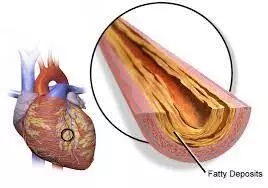
New research revealed that vegetarian and vegan diets improve cardiovascular health by reducing the blood levels of total cholesterol, low-density lipoprotein cholesterol, and apolipoprotein B thus reducing the atherosclerotic burden from atherogenic lipoproteins. The study results were published in the journal European Heart Journal.
Cardiovascular diseases are the leading cause of mortality in the world due to atherosclerosis. Unhealthy lifestyles like cigarette smoking, high blood pressure, diabetes, and atherogenic apolipoprotein B (apo B) containing lipoprotein particles are primary risk factors for atherosclerotic cardiovascular disease (ASCVD). Plant-based diets are becoming increasingly popular as people become more concerned about the environment and health. As there is not enough literature on the effects of vegetarian or vegan diets on blood lipid levels, researchers conducted a systematic review and meta-analysis of 30 randomized controlled trials to examine changes in blood levels of total cholesterol (TC), low-density lipoprotein cholesterol (LDL-C), triglycerides (TG), and apolipoprotein B (apo B) after consumption of a plant-based intervention diet vs. an omnivorous diet.
Using keywords all the studies published between 1980 and October 2022 were searched for in databases like PubMed, Embase, and references of previous reviews. Included studies were randomized controlled trials that quantified the effect of vegetarian or vegan diets vs. an omnivorous diet on blood lipids and lipoprotein levels in adults over 18 years. Estimates were calculated using a random-effects model.
Key findings:
- Thirty trials were included in the study.
- The plant-based diets reduced total cholesterol, low-density lipoprotein cholesterol, and apolipoprotein B levels with mean differences of −0.34 mmol/L, −0.30 mmol/L, and −12.92 mg/dL, respectively when compared with the omnivorous group.
- The impact sizes were comparable across age groups, continents, study duration, health status, intervention food, intervention program, and research methodology.
- There was no significant difference observed for triglyceride levels.
Thus, compared with omnivorous diets, vegetarian or vegan diets were associated with reduced levels of TC, LDL-C, and apoB.
Further reading: aroline A Koch and others, Vegetarian or vegan diets and blood lipids: a meta-analysis of randomized trials, European Heart Journal, 2023; ehad211, https://doi.org/10.1093/eurheartj/ehad211
from Medical News, Health News Latest, Medical News Today - Medical Dialogues | https://ift.tt/2IcCasx


0 Comments